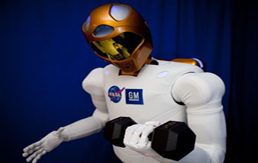E-Book Roundup
Electronic paper could bring video to newspapers and magazines.


PSYCHOLOGY: Why listening to half of a cell phone conversation is so distracting, how we choose which hand to use, why we'll pay more if we can touch a product, and the mechanisms behind a fast-acting antidepressant.

SPACE UPDATE: NASA prepares to launch a human-like robot into space, engineers are designing a more efficient system for launching payloads into orbit, why microwaves aren't as dangerous as some people think, and the physics behind the color of clouds.
Cold weather heart attacks, a new test for ovarian cancer, high-elevation adaptations, what the numbers on a bottle of motor oil mean, and a telephone translator.
TECHNOLOGY UPDATE: Ecologically-friendly plastic, a cleaner way to produce hydrogen fuel, cell phone air sensors, the perils of spaceflight, the ethical implications of synthetic life, and more.
Satellite imagery helps human rights teams assess destruction in war-torn regions of the world.
Satellites for human rights, a sprinter's anatomical advantage, the face of aggression, and newborns with accents.
Solar physicists see the sun in 3-D with NASA's STEREO Solar TErrestrial RElations Observatory.
Early sun spots forecast rough weather ahead during new eleven-year solar storm cycle.
Space Research Update: the 11-year solar storm cycle returns, the MESSENGER spacecraft reports back from Mercury, and the search for intelligent life in the universe continues with the help of your computer. Also: Unique animal and plant adaptations.
This week's web links:
Space Weather Network: www.swpc.noaa.gov/SWN;
Latest MESSENGER photographs of Mercury: messenger.jhuapl.edu;
Sign up for SETI@Home: setiathome.berkeley.edu
Song dialects make a big difference when white-crowned sparrows choose mates and defend territories.
Do women really talk more than men? Insects that explode to foil predators. Energy from vibrations. What happens to our brains when we get thirsty. A skin test to predict behavioral problems.
Contrary to popular belief, men are just as talkative as women, according to new research.
Why cows have four stomachs, a new development in wireless electricity, babies' surprising eye for language, a genetic typo detector, and an archaeological debunking.
Small distractions could be big trouble, the effects of cell phone waves on our health, how nature cleans itself, eels and grouper hunt together, and squirrels and spruce trees outwit each other for seeds.
